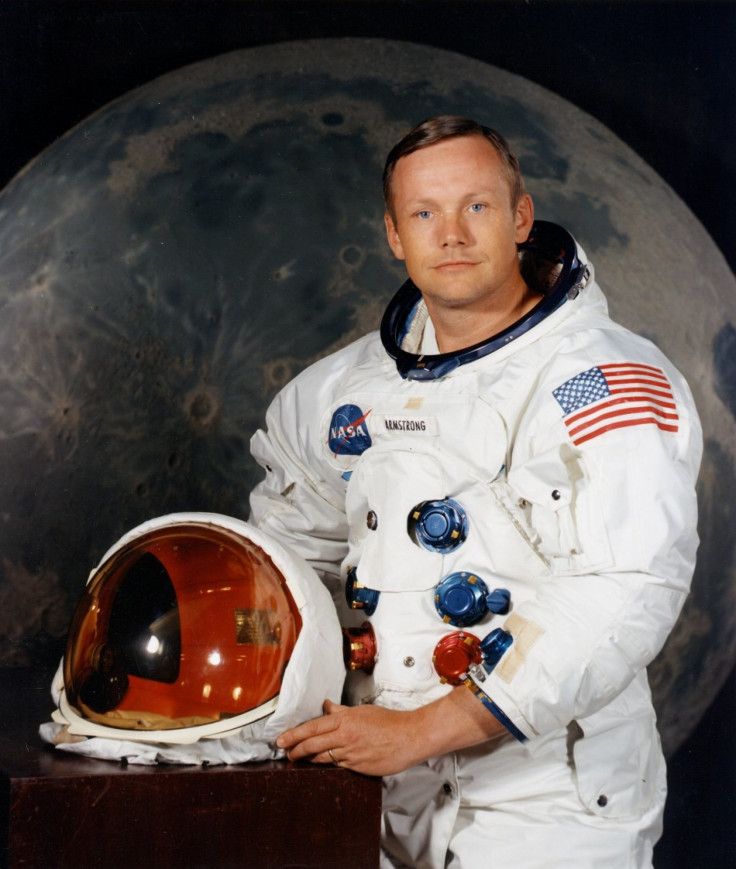Neil Armstrong's Death Inspires Stirring Tributes Across Twitter And The Web

Neil Armstrong, the U.S. astronaut who became the first man to walk on the moon in 1969 and who died at 82 on Saturday, is being mourned worldwide, with many taking to the Internet to express their sense of loss for a national icon of exploration.
Armstrong had recently undergone heart surgery.
When news of Armstrong's death broke, Twitter erupted in a sea of memorial tweets, as the phrases "RIP Neil Armstrong," "Apollo 11," and "First Man" immediately began trending on the social-media site. NBC News, which broke the story, also became a trending topic.
Below are a few of the heartfelt memorials to Armstrong, coming from celebrities, media personalities, and ordinary men and women inspired by Armstrong's heroic walk on the moon.
"So sad about Neil Armstrong. I was honoured & fortunate to have met and spent a little time with him, & he was even nicer than you imagine," tweeted Neil Gaiman, author of "American Gods" and "Coraline."
Tech blog Boing Boing was quick to post a memorial piece for Armstrong, writing, "That's one giant loss for mankind. #RIPNeilArmstrong" Boing Boing author Bob Jacobs spoke to Michael Collins, Armstrong's fellow crewmember on Apollo 11 shortly after Armstrong passed. Collins said, "he was the best, and I will miss him terribly."
Warren Ellis, the English writer best known for "Transmetropolitan," praised Armstrong for the technical feats involved with his historic landing. "Neil Armstrong has died, aged 82. Manually flew a spaceship and landed it on the Moon. Relaunched it with a bit of a pen. Beat that," he tweeted.
Ellis' stirring short-form tribute to Armstrong was retweeted more than 2,300 times by fans and celebrities, including comedian Patton Oswalt.
Some chose to remember Armstrong through his inspiring words. Sam Stein, political correspondent for the Huffington Post, tweeted a famous quote from Armstrong, "I believe that every human has a finite number of heartbeats and I don't intend to waste any of mine."
Others wrote that the best way to carry on Armstrong's legacy would be to increase scientific funding. Comic artist Jeph Jacques tweeted: "The greatest tribute to Armstrong we could provide would be to increase funding for science. Not just space travel but ALL science."
Across the Web, stirring memorials to Armstrong popped up to pay tribute to the astronaut. Gizmodo's offering reminded readers, "With but a one historic step, he showed the world what kind of feats humanity is capable of achieving. He will be sorely missed. Rest in peace Neil, you are back among the stars."
Armstrong's own family released a remarkable tribute in the wake of his death, extolling him as a kind and virtuous man. Hosted by ABC News, the statement read, in part: "For those who may ask what they can do to honor Neil, we have a simple request. Honor his example of service, accomplishment and modesty, and the next time you walk outside on a clear night and see moon smiling down at you, think of Neil Armstrong and give him a wink."
Armstrong, a Korean War veteran and test pilot for the U.S. Navy, took part in the Gemini program and was later assigned to the Apollo program, where he would accomplish what many thought impossible. During the Apollo 11 mission, Armstrong, alongside Buzz Aldrin and Michael Collins, not only landed successfully on the surface of the moon but also embodied America's technological dominance over its rival in the 1960s space race, the former Soviet Union.
In memory of Armstrong, watch a video of his historic 1969 moon landing below.
© Copyright IBTimes 2024. All rights reserved.






















